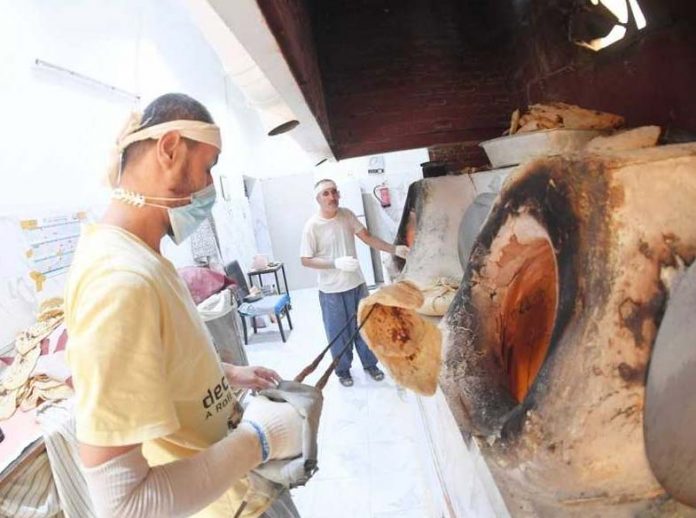It seems that Iranian bread, loved and preferred by many families, has become a scarce commodity and may become a “food of the past” in the near future. A large number of tannour bakeries have shut down in many populated areas for several reasons, most notably the high rents, in addition to the departure of many bakers and workers who were experts in tannour baking either due to Covid-19 pandemic or several other reasons.
While some of the Iranians bakers have opted to work in coop societies and branches, others have found work at fish and vegetable markets, restaurants and others.To add insult to injury many of them left the labor market and returned home when the Public Authority for Manpower increased residence fees for non-graduate expatriates 60 years and above to more than 800 dinars including private health insurance and a majority of tannour workers fell in this category of workers and had no option but to leave for good.
With the monthly rents of shops in the investment areas reaching 750 to a thousand dinars, many of the bakeries owners making Iranian bread abandoned their businesses while some lucky ones found an opening in branches of cooperative societies and the shops designated for bakeries in the central markets.
The advantages granted by cooperative societies, with the approval of the Ministry of Social Affairs, to Al-Tannour bakeries, have contributed to keeping this activity next to some coops, despite the closure of about 40% of Iranian bread bakeries in the country’s regions.
Ehsan Muhammad, who is in charge of Tannour Bakery in one of the cooperative societies, says the production in these bakeries is no longer limited to one type, which is Iranian bread in its usual size and shape. Rather, many bakeries have obtained approvals for producing other types of baked foods.
Muhammad went on to say, theIranian bread covered with sesame seed mixed with flavorings such as “cocoa, honey, cheese, cream” is one of the new products, in addition to the brown type produced with barley. Muhammad Shahid added, “During Ramadan, the demand for Iranian bread increases, and the production peaks in the afternoon and until the Maghreb call for prayer. The number of bread that is produced daily is about one thousand bread.
He pointed out that keeping the price of bread at 20 fils is due to the fact that bakeries obtain subsidized flour and diesel from the state, so the costs are good compared to the profits made monthly.
Despite the disappearance of tannour bakeries from the investment areas, they increased in cooperative societies and their branches whose numbers have shot to about 65. Another benefit is that the workers are granted residence permits and free health insurance, in addition to subsidized gas to operate the ovens.
The head of the Consumer Protection Association, Mishaal Al-Manea, spoke to the daily of the keenness of the cooperative societies to provide subsidies to tannour bakeries to preserve the price of products from any rise and protecting the rights of consumers.























